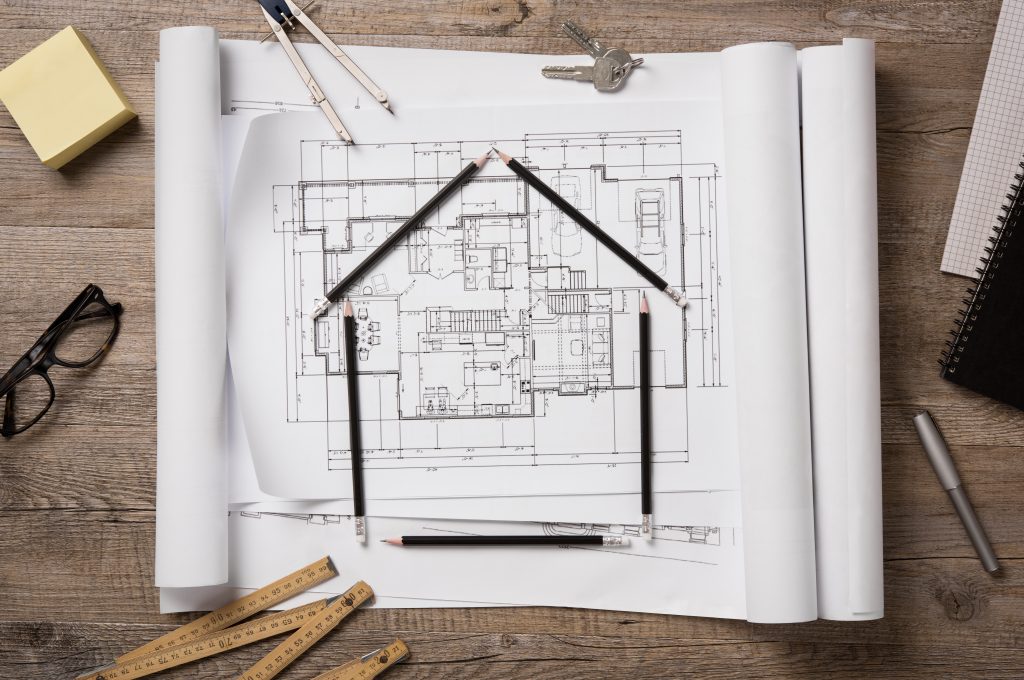Turnkey vs. Owner-Builder


When it comes to building a custom home you have construction options. For some that are contemplating building a new home, they feel like they know what they want and they want to have the control over the subcontractors and process of how their home is built. By acting as their own general contractor, they feel like they can save money and build their new home with higher quality materials. For others, the mere thought of the home building process is enough to trigger a panic attack. Let’s explore the advantages of both options.
Turnkey: Here’s My Building Lot, Call Me When You’re Done
Most that are building a custom home already own the land they want to build on. In some cases, they may still be looking. When you already own the land you have an idea of some style and size that you want to build. You typically start the process by finding a builder that helps with the design (a Design/Build Firm) or you engage an architect or other design professional to develop your perfect plan and then take that plan to a number of builders to provide quotes to build your dream home.
The process of building a custom home can be intimidating and time consuming. There literally hundreds of decisions to be made and lots of moving parts that must be coordinated. There are usually loans involved and expensive materials to be purchased. For many, the magnitude of a home building project in terms of both transaction size and unfamiliar terms and processes is too much. They want someone else to be completely responsible for their new home project. They simply want to point to their building site and say, “There it is, call me when you’re done!”
Even when you hire a General Contractor/Custom Home builder, it isn’t quite that easy. The 100’s of decisions still have to be made, materials will be back ordered, subcontractors will be delayed, and weather will happen. Someone else is just going to be responsible for the scheduling and management for the construction of your new home. Just remember, there is a cost for having someone do that. For many, that cost is worth it.
Owner-Builder: Building on a Budget

Another option when building a home is for you to act as your own general contractor. It may sound far-fetched to even think about at first. You may not have the knowledge and back ground in construction that you think would be necessary. You don’t think you have the time or contacts to successfully complete your new home. But, some look at managing a home build like any other project. If you are used to doing projects at home or at work, the process of building a home is very similar. It just takes some resourcefulness to find subcontractors and to navigate permit offices to build your own home.
Owner-builders have complete control of their home project. They also have complete responsibility. When a general contractor is used, they charge a fee for their work. In some cases, the charges can be significant. However, they are responsible for managing the schedule and the quality of the end product that must meet the terms of the contract. If they don’t meet the terms of the contract they bear the financial risk. If something goes really wrong, their profit can evaporate quickly.
In the case of the owner-builder, they aren’t paying someone else to build their home. They are saving the fees the general contractor would have charged. Again, this can be a very substantial savings. However, if the owner-builder doesn’t protect materials or manage sub-contractors properly, they may have to pay twice to get it done correctly. There is no one to fall back on. There is nothing like the pride of building your own home, doing it right and getting your new home at great savings. But it is important to understand exactly what have your responsibilities will be so there are limited surprises in the process. Surprises can be expensive.
Impacts on Construction Loans
Lenders can take different views on home owners acting as their general contractors. When an experienced home builder/general contractor is involved a lender can feel confident that they the home will get done reasonably on time and within budget. The house may cost more to build but the bank knows a professional builder will see the project through.
For owner-builders a bank can take the perspective that the new home is being built most cost effectively and that the owner and lender will have more equity in the home upon its completion. Some banks worry that a home owner may not have the experience or ability to see a large project through until the end. If that happens, a bank doesn’t want to become a builder to get the new home completed. Therefore, some banks provide construction loans for owner-builders. Others may have a strict policy against it. You need to talk with your lender to find out what their policies are if you are contemplating building your own home.
Can Modular Construction Make Owner-Builder Easier?
Modular construction is a great option for owner-builders. The factory has done much of the heavy lifting. While all of the same decisions will still need to be made regarding colors and materials, the construction of majority of the home is concentrated in a factory offsite. Onsite you can be coordinating the excavation and foundation installation. Modular construction means you are limiting the scope of onsite work and, because of the indoor construction, weather plays less of a role in your new home project. You can more easily and accurately schedule material deliveries and subcontractors.
RELATED: Today’s Modular Construction is Energy Efficient and Quality Built
Because much of the work is already done with modular construction, and because onsite work is happening concurrently with the factory construction of the home, building a custom home happens much faster. Getting a home constructed quickly means things are less likely to go wrong and weather won’t have as much of an opportunity to delay construction. It is important to understand exactly what the factory will do and what will need to be done onsite. Remember, surprises cost both time and money. When possible, find an experienced builder to act as an advisor or consultant to help you with your project. You’ll be glad you did!
Modular Means More
Deciding whether to pay a home builder to manage your complete project or taking on the owner-builder role yourself can be a big decision. Experience, time availability, personality, and budget can play a big role in your decision. Whatever you decide, modular construction offers a better method to build your new home.
Modular homes are less risky to build. Because they are built in a factory and delivered 75% – 85% complete, the home is done quickly leaving less of a chance for something to go wrong. Modular homes reduce the risk for construction loan lenders. When it comes time to build your new home, modular means more!
The post Turnkey vs. Owner-Builder appeared first on Impresa Modular.




